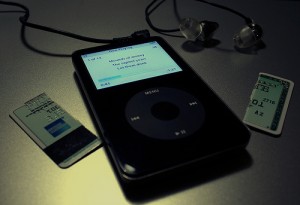 Now that our emergency fund is complete, and we’re less than $1000 away from our goal to pay for our Europe trip in cash, I’m starting to think about what goals are next for us. Even though we’re unlikely to make much progress in the months ahead, it’s time to set our priorities and figure out where to start funneling our resources.
Now that our emergency fund is complete, and we’re less than $1000 away from our goal to pay for our Europe trip in cash, I’m starting to think about what goals are next for us. Even though we’re unlikely to make much progress in the months ahead, it’s time to set our priorities and figure out where to start funneling our resources.
We have several goals for the next 3 years or so, but we’re still undecided on the order of things. Here’s a rough sketch:
Save $6,000 for moving expenses.
It will cost us under $1,000 to physically move our stuff. Tony’s family has generously offered us a place to stay while we get settled in and look for jobs, but we have several expenses that we’ll have to pay (health insurance, car insurance, cell phones, student loan payments, and groceries). We’ll need about $1,000 a month.
We’re hoping to find part-time jobs right away to extend our savings. My hope is that $5,000 plus whatever we make part-time will be enough to cover our expenses until we find jobs. Of course, in this economy, there’s no telling how long it could take. If we run out of “moving money” before we have jobs, that’s what our emergency fund is for. But I’m crossing my fingers that we won’t have to dip into that.
Our tax refund will give us quite a good start, and now that we’re done saving our emergency fund and Europe, we can devote all of our monthly savings to this goal, so saving this by May shouldn’t be a problem.
Buy a second car.
I know we’ll eventually need a second car. I want to wait until our current car is paid off before we begin shopping for a new one, but this will depend largely on our living situation once we move. If we’re both working on separate sides of town, it won’t be as easy as it is now for us to share a vehicle.
For now, we’re playing it by ear. Our car will be paid off in May 2011, and depending on our situation, we may need a second car sooner than that. So we’re starting to save now for a down payment at the very least, but if we have more time we might be able to pay cash.
Buy a house.
This is the big one, and it’s the goal that intimidates me most. I’m not against having a mortgage, especially if it’s a sensible one, but I’d like to save $20,000 in cash before we even consider buying a house. Saving that much money is a really tough commitment to make when I look at the cost of rent in the Indianapolis area, though. Considering our modest price range, it’s likely that a monthly mortgage payment would cost us less than rent.
Our plan is just to start saving, and then wait and see what our situation is. We may start doing some serious looking to figure out exactly what it would cost us, and if it makes sense to do it sooner, we may.
Pay off our student loans.
We still have a significant amount of student loan debt between the two of us. We’re currently paying them down slowly but surely, but eventually we plan to get much more aggressive to pay them off more quickly. At this point in our lives, though, I think security and stability is more important. I want to be debt free, but paying off those loans more quickly would eat up a huge percentage of our financial resources. So this goal remains on hold for now. It will likely wait until we’re settled homeowners.
I know that it’s unlikely that we’ll make much progress in the months ahead. Things are going to be very tight for us right after the move. We’ll be in survivor mode again, spending savings with no income, but we’re reasonably prepared. I can only hope that it will be very short time period before we’re able to start saving again.
I also have to remind myself that three years ago saving an emergency fund, moving halfway across the country, and paying cash for a trip to Europe seemed just as impossible. These are bigger goals, but we can achieve them if we stay focused.
 This past Saturday, cities and households throughout the world observed Earth Hour. Once a year, families, businesses, and cities shut off the lights for one hour to raise awareness about energy conservation.
This past Saturday, cities and households throughout the world observed Earth Hour. Once a year, families, businesses, and cities shut off the lights for one hour to raise awareness about energy conservation.





